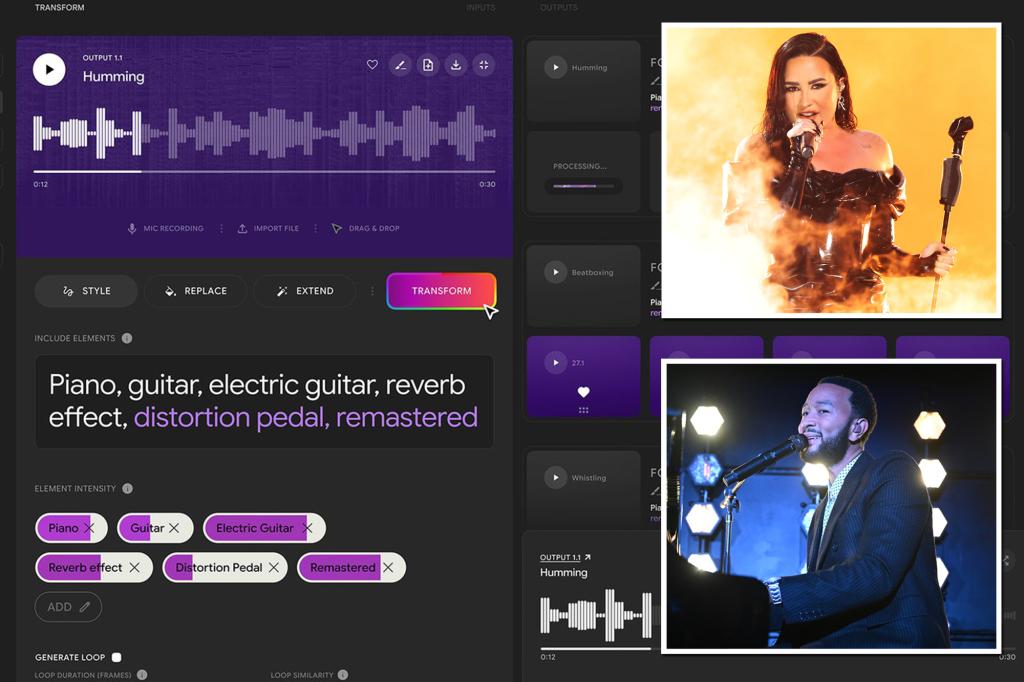While some critics have raised concerns about the latest technologies allegedly stripping songs of their “human spark,” YouTube has introduced a new AI tool that can produce audio tracks sung by popular artists such as John Legend and Demi Lovato.
The Artificial Intelligence tool, named “Dream Track,” is now available to US developers on YouTube Shorts, a section of the video platform. Users are prompted to input a prompt that will then generate a 30-second audio clip featuring the simulated voice of a well-known artist.
Among the featured voices in “Wish Lines” are those of John Legend, Demi Lovato, Charlie Puth, Sia, Alec Benjamin, Charli XCX, Papoose, T-Pain, and Troye Sivan.
In a demonstration video showcasing the Charlie Puth voice, the prompt “A song about how opposites attract, optimistic acoustic,” was entered into Dream Track. Puth then sings, “Baby, we have nothing in common, but I know I’m what you’ve been wanting for such a long time.”
However, the feedback on the Dream Track development has been mixed. Some viewers expressed concerns about the impact on artists and the creative process, with one commenter stating, “The world we’re creating here is making it harder and harder for those people to survive.”
The development of Dream Track was a collaboration between Google’s AI laboratory DeepMind and YouTube, introducing Lyria as their latest AI music generation model. Despite the concerns raised, YouTube emphasized its commitment to responsible AI development through initiatives such as Content ID to protect rights owners.
In the music industry, there have been legal actions taken against AI companies misusing copyrighted material. Universal Music Group, along with other publishers, filed a lawsuit against Anthropic for allegedly misusing copyrighted music lyrics in their AI technology.
Similar lawsuits have been directed at other AI companies like Meta and OpenAI by authors seeking to protect their intellectual property. Stand-up comedian Sarah Silverman also filed lawsuits against these companies for allegedly using her work without permission in training their AI models.
The intersection of AI technology and creative content continues to raise complex legal and ethical questions that are being addressed through legal actions and industry collaborations.






